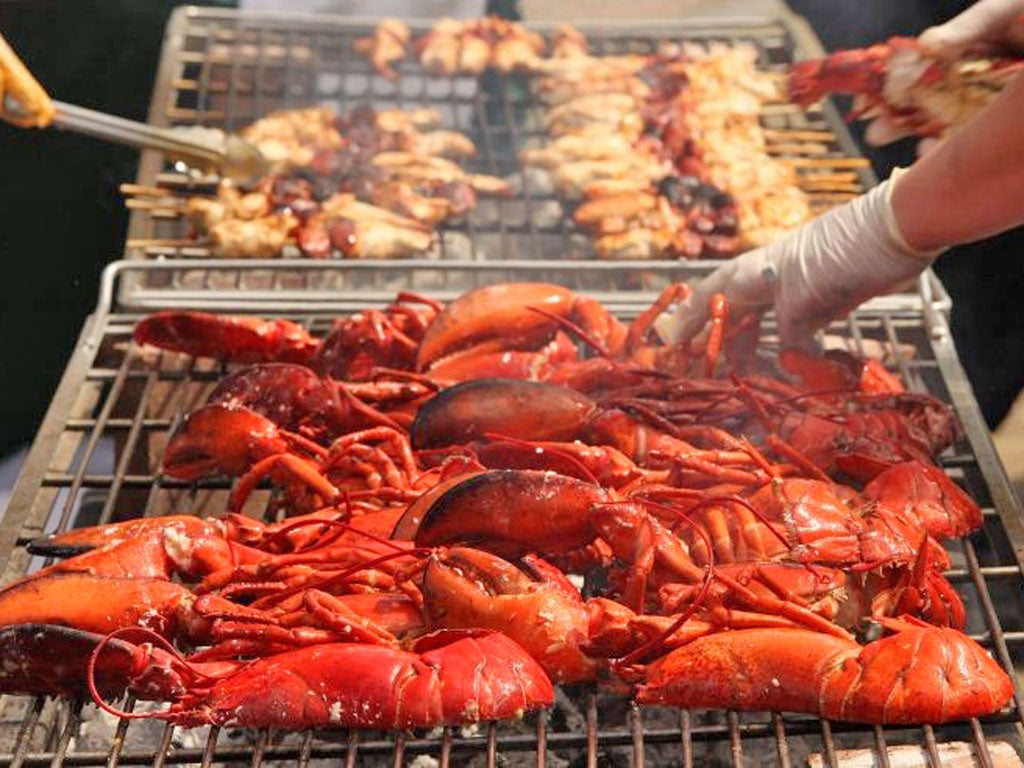The claws are out for lobster's social status

It's classic cinematic shorthand. A person eating lobster in a film is usually doing so for one reason: to communicate, at a stroke, that they are horribly snooty – or just plain loaded. It is a synecdoche for luxury living. Or at least it was.
The lobster has scuttled down the socioeconomic pyramid of late. It's now not unusual to see it in a bun smothered in mayonnaise, or served in tandem with a burger (as at London's Burger & Lobster).
The reason, we learn in Josh Ozersky's recent column for Time, is not intensive farming, as some had assumed. It's the weather. Global warming has seen sea temperatures around the lobster grounds of North America rising, leading to something approaching a lobster surfeit. Consequently, prices have dropped to around $2 per pound. This means that what used to be the king of the menu is now, in some places, cheaper to chow down on than chicken or hamburger meat. The reverse effect to what happened to oysters over the 19th and 20th centuries.
So, the news is a nice treat for crustacean fans, then, but not so good for film directors in search of a handy visual metaphor.
Join our commenting forum
Join thought-provoking conversations, follow other Independent readers and see their replies
Comments
Bookmark popover
Removed from bookmarks